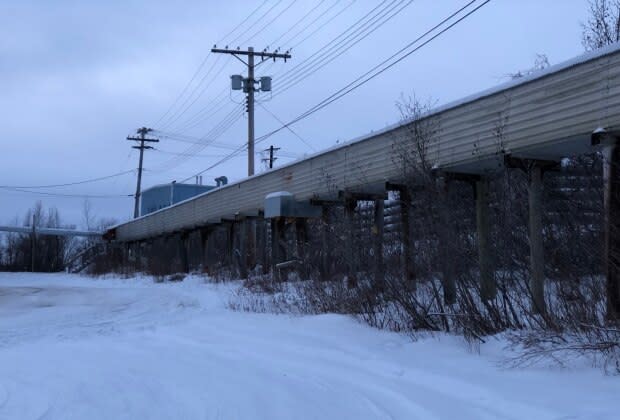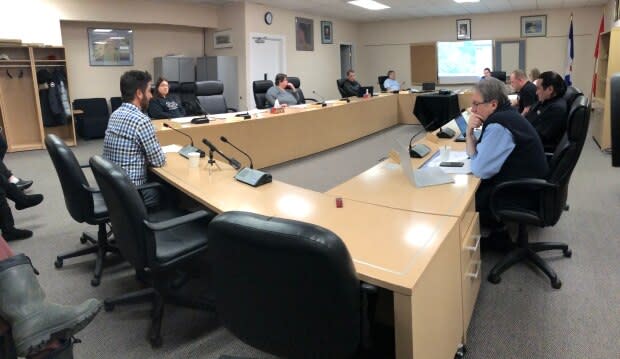Inuvik's utilidor, nearly 65 years old, will cost $80m to replace
Inuvik, N.W.T.'s original utilidor system is nearly as old as the town, which is why it's time to replace it.
The utilidor, short for utility corridor, is how Inuvik delivers water and sewer services to buildings in the community. It's above ground since having the system underground would heat up and melt the permafrost.
Some areas of the original utilidor are nearly 65 years old, although the expected service-life for the system is only 30 years.
"The reality is, the biggest issue with the utilidor is the wood piling. It's not meant to last this long," said Micahel Maltais, a civil engineer with McElhanney Group. "It's 60 years in the ground, and there's various amount of rot throughout the town."
"Some place it's minimal, other places it's collapsing. The good thing is we've replaced a significant amount of this stuff in the last 30 years and that utilidor should last a very long time."
Maltais has been managing the utilidor replacement project for about ten years.

He said "Inuvik by far has the biggest utilidor system" in the N.W.T. since the soils are very ice rich.
At Monday night's town council meeting, he gave council an update on the project.
The town just completed a two-year, $10 million project that replaced the utilidor from the crossing at Franklin Road to the sewage lagoon.
However, the town still has 6,400 metres of old utilidor that remains, and it will cost nearly $80 million to replace all of it.
Maltais said the next phase of the replacement will cost around $20 million.
It will go from the sewage lagoon, past the water treatment plant and RCMP detachment building, looping to Spruce Hill. A second line will go from that line toward the hospital.
Maltais said the town's current budget to work on the utilidor is about $2.5 million per year. At that rate, it would take over 30 years to completely replace the old sections.

Grant Hood, senior administrative officer for the Town of Inuvik, said the town has budgeted $3 million to restore the utilidor next year, but are looking at different funding options, such as applying for federal funding from the disaster mitigation and adaptation fund.
He said the project is quite complex.
"The challenge that we have replacing [the] utilidor is if there's connections … into buildings or houses, we have to put temporary connections in," Hood said.
Hood mentioned that warmer average temperatures is causing the permafrost to melt, which ends up delaying the restoration process.
The new utilidor system is made of metal, and Hood said it is easier to be maintained and much more sturdy. It has a much reduced chance of snapping if there were to be an earthquake.
"We've gone to longer piles but also metal piles which has a much, much longer shelf life in the ground," said Hood.
Hood said he recognizes the utilidor is the "life-blood" system for people, and the town is working on restoring it as timely as they can.


